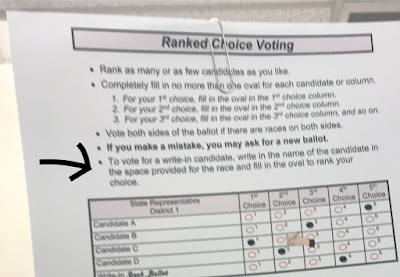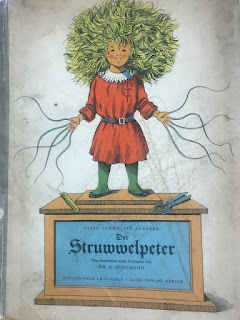Given how the Supreme Court has moved front and center in the debate on the future of democracy in the United States, I've been posting some old blog posts about the Constitution. I've tried to put key points into a bigger context than we see on Twitter or in mainstream journalism.
Here, I take a critical look at the idea of Originalism. The previous two posts were put up in 2009. This one in 2016. Maybe now people will read these with more interest.
February 25, 2016
When Scalia died, I realized that I hadn’t seriously examined his ‘originalist’ theory for interpreting the constitution. I knew that he was outspoken, that I disagreed with the most publicized decisions, but also that he was a good off-the-court friend of Ruth Bader Ginsburg, so there had to be more depth than I was seeing.
I was inspired in part by the way Scalia and Ginsburg, so very different in their understanding of the cases which impacted their interpretation of the constitution, liked each other and spent time together outside of the Court.
From an NPR piece:
"They liked to fight things out in good spirit — in fair spirit — not the way we see debates these days on television," NPR's Nina Totenberg recalled on the NPR Politics Podcast. And Ginsburg admitted once that Scalia made her better. One night last year when the two justices appeared onstage for an interview together in Washington, D.C., Ginsburg talked about a time when Scalia showed her his dissenting opinion in a case before she had finished the majority opinion. "I took this dissent, this very spicy dissent and it absolutely ruined my weekend," Ginsburg said. She made some tweaks to her own argument. [emphasis added]
So I started a blog post looking up ‘originalist’ theory. I thought that while I was inclined to be skeptical, I ought to at least look at it more seriously. I did. I’d like to present here what I’ve found.
Overview of ConclusionFor those who scan posts in 60 seconds or less - my conclusion is that ‘originalism’ has, as one writer put it, good PR, but basically it’s just old wine in a new bottle. Like creationism, the old strict constructionist theories of law had been abandoned. This allowed judges to deal with the many kinds of ambiguities in the law, such as conflicting laws, unclear language, situations unanticipated by the law, etc.
A number of canons developed over the years to help judges deal with statutory interpretation.
In my, albeit brief, review of originalism, I think, at this point, that originalism is something like Intelligent Design which came into being as a religious alternative to evolution, one that smells suspiciously like creationism, but packaged in what its authors hoped would be a more palatable package. Furthermore originalism has the public relations value of sounding like its fidelity to the constitution is greater than living constitutional theories.
Ginsburg’s approach, living constitutionalism, follows the traditions of case law to find ways to deal with inconsistencies in law, generalities in the constitution, and modern situations unanticipated by the constitution. It isn't simply the bias of the judge substituted for the constitution. Rather, when the text of the constitution isn't adequate to resolve a case, a judge then uses other long standing practices to resolve the conflicts and determine a decision that is consistent with the constitution. Living constitutionalists at least acknowledges that it breathes new life into the constitution in order to deal with situations that weren’t and couldn’t have been anticipated 200 years ago when the constitution was written.
Scalia’s faction, on the other hand, makes a pretense that it is adhering to the real original meaning of the constitution. I’m left with the conclusion that this originalist claim to some sort of constitutional authenticity is hollow.
The rest of this post explains why I believe that. I’m not claiming to be a constitutional scholar or to have read all the articles on this, but I’ve read enough that I’m seeing the same arguments repeated, or I’m seeing very esoteric stuff, that may have some relevance to finer points, but doesn't seem to shed light on the basic conflicts.
Looking At OriginalismThere's no way I can go into all the intricacies in a relatively short blog post.
You can read a bit more here for a fairly light overview (with an unfortunate don't-worry-about-it, all's-well-that-ends-well conclusion). Originalism is a variation of what used to be called 'strict interpretation' theory which argued that one must read the law strictly and follow what it says. My administrative law book in the 1970s dismissed this view of the law as hopelessly unusable because
- there were often conflicting laws and you had to have a rationale for picking one over the other;
- the law may be unclear or insufficiently detailed for a particular situation
- situations arise which the law didn't not anticipate. Not only would this include absurd outcomes, but also situations resulting from new technologies not anticipated when the law was written.
Even Scalia removed himself from this extreme position (
from Wikipedia):
"Antonin Scalia, the justice most identified with the term, once wrote: "I am not a strict constructionist, and no one ought to be", calling the philosophy "a degraded form of textualism that brings the whole philosophy into disrepute". Scalia summarized his textualist approach as follows: 'A text should not be construed strictly, and it should not be construed leniently; it should be construed reasonably, to contain all that it fairly means.'"
And who judges reasonable here?
To get more details on originalism and reasonableness, you can see
the Wikipedia overview. It's not the final word (nothing really is) but it gives us a sense of the concept. And as you read it, you'll see that originalists aren't all of one mind. For instance
The original intent theory, which holds that interpretation of a written constitution is (or should be) consistent with what was meant by those who drafted and ratified it. This is currently a minority view among originalists. The original meaning theory, which is closely related to textualism, is the view that interpretation of a written constitution or law should be based on what reasonable persons living at the time of its adoption would have declared the ordinary meaning of the text to be. It is this view with which most originalists, such as Justice Scalia, are associated.
Understanding the mindset of a reasonable person of the late 1780s in the newly independent, but not yet united, colonies is a tricky feat. Imagining what people thought and understood over 200 years ago is no easier than understanding the people who live in a foreign country today. That doesn't stop people with little or no knowledge of, say, Afghanistan expounding on what the US should do there anymore than it stops jurists with perhaps a better reading of the 1780's, but no real deep understanding of the mindset of the time.
Furthermore, then, like now, reasonable persons had different beliefs. (Imagine someone two hundred years hence choosing the reasonable person who would represent today's United States.) Those who mattered back then were basically white, male, Protestant, landowners. (
One delegate from Maryland was Catholic.) From their view, women rightly needed their husbands' approval to make most important decisions. Indians were savages. Blacks were a lesser form of human, whom their new constitution allowed to be owned by white slaveowners. Is that really the view that Supreme Court justices today should use to interpret the constitution?
When I wrote that, I was aware that I was extrapolating from some brief overviews and knew that I hadn't read any of the scholarly articles on the subject. Others might well have addressed my concerns. So I googled "definition of reasonable person for originalists."
I found
this 2014 BYU Journal of Public Law article by Stephen M. Feldman which shows my thoughts are pretty close to the mark (at least his mark), though the author finds lots more that suggests that those reasonable persons back then would have used far more than the constitution and a 'the reasonable man' to make a decision.
Early judicial opinions and legal treatises reveal an eclectic or pluralist approach to constitutional interpretation; no single interpretive method dominated. Early judges and scholars invoked not only reason, but also the text, constitutional structure, framers’ intentions, original public meaning, and so on. Yet, no judge or scholar maintained that constitutional meaning should be ascertained pursuant to a reasonable-man standard."
And Feldman's comments about the difficulty of understanding the context of the time are similar to what I wrote above:
"The contexts and the contingencies engender, for a historian, the sub-texts, the layers of underlying meaning. But originalists disregard context, contingency, and subtext. Originalists, that is, use history without a “historicist sensibility” or historical understanding. (p. 299)
They want to find a fixed objective meaning when a historical text, such as the Constitution—especially, the Constitution, which forged a nation in a political crucible—is roiling with subtexts."
And his comments about which reasonable person one would choose are also similar to what I wrote above:
"How did people relate to and interact with others? With family members? With strangers? How did people work? Were they subsistence farmers or involved in commercial transactions? How were they educated? Were they literate? How important were religious beliefs? How about gender and race? Should the researcher limit the investigation to white Protestant propertied males because they were the primary voters? With so many variables—and there are many others—the assiduous researcher would probably conclude that founding-era people were too diverse to be reduced into a hypothetical reasonable person." (p. 302)]
But if we are going to choose a reasonable man of the period, who better to use than Thomas Jefferson? Reading critiques of 'originalism' I came across comments he made that are directly relevant here and are called "the Jefferson problem" with originalism. This is from Society for
US Intellectual History (S-USIH):"In September 1789 Thomas Jefferson wrote to James Madison from Paris that “the question Whether one generation of men has a right to bind another, seems never to have been started either on this or our side of the water.” In making his own answer, Jefferson famously declared that “the earth belongs in usufruct to the living,” that “by the law of nature, one generation is to another as one independant nation to another,” and furthermore that “no society can make a perpetual constitution, or even a perpetual law… Every constitution then, and every law, naturally expires at the end of 19 years. If it be enforced longer, it is an act of force, and not of right.'”
Feldman's whole article tends to show much of the originalist 'theory' to be superficial and non-factual. And he quotes others who see the whole idea of originalist theory as a fiction that allowed for a wide leeway of interpretation.
"In the words of the legal historian Saul Cornell, reasonable-person originalism turns “constitutional interpretation into an act of historical ventriloquism.” The reasonable person is a dummy who speaks words uttered by the originalist scholar or judge."
[Feb. 25, 1:30pm AKTime: I did some edits here to remove some accidental repetition.]
Conclusions
The variations of living constitutionalists don't nail any specific one best way to interpret the constitution. But they do assume that the framers intended the constitution to be a living document to be interpreted in the context of the times. Surely the fact that the framers created a process to amend the constitution suggests they saw the need for changes as times changed. Any concept, of course, can be misused by the person applying it.
But it seems that originalism has more built in contradictions than living constitutionalism, which acknowledges that it must fill in where the constitution leaves off. It's very difficult, for example, to figure out how, theoretically, an originalist deals with, say, both the document ratified in 1788 which considered slaves as 2/3 of a man for purposes of determining population and gave them no rights, and with the 14th Amendment adopted in 1868. When they consider the reasonable man of 1788, do they simply cut out that part of his mind that allowed for slaves in 1788 and leave the rest intact?
Is my title metaphor too strong? Perhaps. Intelligent design is a religious take on life on earth as opposed to the science of evolution. Originalism isn't that removed from living constitutionalism. But the metaphor works, when we think about originalism as a warmed over version of strict constructionism with better public relations as a way to push a philosophy that conservatives believe will work better for them. The fiction parts include that it a) is more true to the constitution and b) doesn't allow for bias to color decisions.
I've been writing, reading, cutting, and pasting, more reading, talking to folks, and I realize this post could go on forever. As much as I'd like this to be a complete overview with a neatly proven conclusion, this is not a law review, and most of my readers will never get as far as this sentence. And there is much I haven't read where some of what I say is already said, or corrected. Think of this more as working notes. I hope readers who see problems point them out and their sources.
There's lots more to cover in this topic. I'm going to cut and paste the left overs and if time allows and the spirit is willing, I'll go further in future posts. I'd like to look at living constitutionalism in more detail and criticisms of it. I'd also like to look at some cases where Scalia reveals that despite originalism, he himself seems to be susceptible to substituting his bias for the constitution, such as Bush v. Gore. And I'd also like to pursue a bigger question: how does an individual decide which constitutional philosophy is best? Is there some objective 'best?' Or are there simply different approaches and there is no foolproof way to pick one? That all contain their own strengths and weaknesses? And, is originalism a sincere effort to better interpret the constitution or was it designed as a cover to move American legal decisions to the right? And I realize that it needn't be an either/or question. It could be both.















